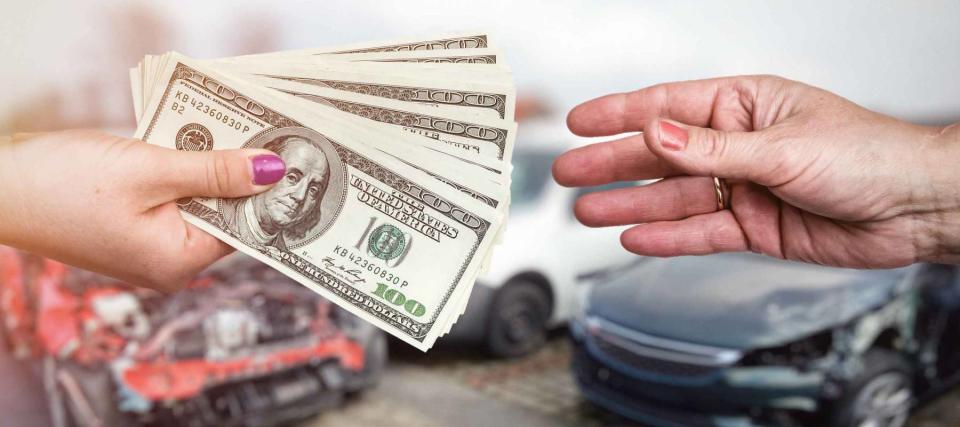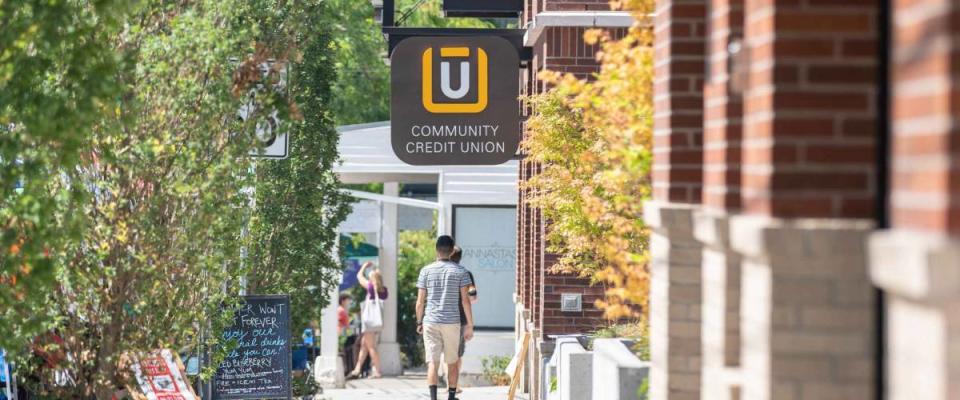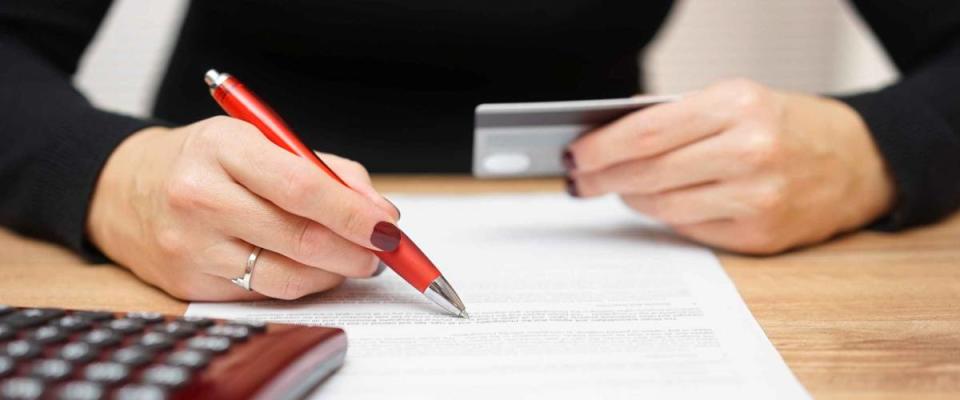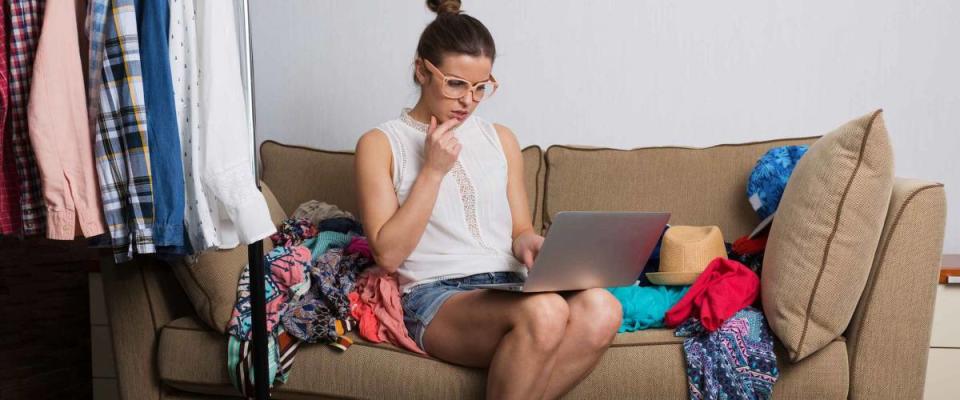4 ways to get a small loan for a money emergency

When the unexpected strikes — like a car accident, a medical emergency or a layoff caused by a raging global pandemic — sometimes the only way to find money is to borrow. But you don't want to compound your problem with a bad loan.
Payday loans are readily available but come at a steep cost: often about $15 per $100 borrowed from a storefront lender, according to the Consumer Financial Protection Bureau. Expressed as an APR, that's nearly 400%.
To avoid getting gouged for a small loan, you can follow some basic rules of thumb. Look for fixed monthly payments and a short repayment term of three to 12 months. Make sure those payments cost you less than 5% of your monthly income. And watch out for a surprise "balloon payment": a large final bill at the end of the term.
That will help you avoid a bad loan, but you should aim for a good one. Here’s how to get a small personal loan for the lowest cost.
Start with credit unions

Local credit unions charge less than traditional payday lenders.
Credit unions are not-for-profit institutions that typically have lower fees than other options. They're supposed to function more like a community than a bank and focus on serving their members rather than turning a hefty profit. You'll have to sign up to become a member before you can get a loan.
For federally regulated credit unions, the maximum APR on a personal loan is capped at 18% — though it's common to pay half that or less. If you just need a small amount — between $200 and $1,000 — credit unions also offer payday alternative loans (PALs). The rules state that PALs can't charge an interest rate higher than 10 percentage points above the rates of other loans (so they top out at 28% APR), and the maximum application fee is just $20.
Credit unions often lend to people who don’t have perfect credit. However, you will need to show proof of income by presenting a recent pay stub or check from your employer. If you're not sure what your credit score is, you can easily find out your score for free.
Explore big banks

A 0% interest credit card from your bank could be a good option.
Getting a small loan might be difficult if you approach a large national bank. Some don't offer personal loans at all, while others offer loans starting at several thousand dollars.
At the lower end, Citibank has loans starting at $2,000 and PNC gives out loans of $1,000 and up. Regional and local banks might also be willing to give you a small personal loan.
However, major banks may push you to sign up for a credit card instead of giving you a small loan. This might be a good way to pay for an emergency bill — but only if you can quickly pay off the card’s balance in full. Carrying a balance over an extended period will cost you quite a bit more in interest payments and may hurt your credit score.
To make the most of this option, look for a low-interest card or one with an introductory 0% interest offer. Credit providers usually offer 0% for just a few months, so make sure to pick a card with a no-interest term long enough for you to pay off what you spent.
Try online lenders

Getting a loan online is quick and convenient.
Online lenders can be a good choice if you’re looking for a simple and convenient way to borrow money. Many can get you a loan fast — often by the following business day.
These businesses often evaluate clients differently than traditional lenders when determining whether they qualify for loans and for how much. This means, like credit unions, they may be willing to work with you even if you don't have perfect credit.
Plenty of non-bank lenders compete online, so don’t settle for the first option you see. Those include person-to-person (P2P) operations, which let you borrow from an individual or small group of people rather than an institution.
To get the best deal, compare lenders’ interest rates and repayment periods and ensure they’re a good fit for your budget and income. Just watch out for high "origination" fees when you first take out the loan as well as prepayment penalties if you try to pay off the loan faster.
Use a site that will let you quickly compare rates from multiple lenders at once, with no hidden fees. You might borrow as little as $1,000 or as much as $100,000.
Seek alternatives

Sell extra clothing, electronics and more online for quick cash.
Before turning to traditional lending sources, consider these cheaper alternatives:
Arrange a payment plan with the merchant or business. For medical bills, speak to your practitioner or the clinic to set up a payment plan you can handle.
Local nonprofit and religious organizations may offer financial assistance and low-interest loans to people who need help paying for emergencies or essentials like rent and utilities. They may even have advisers to get your finances back on track after the emergency has been dealt with.
Ask for a paycheck advance from your employer. Many employers are willing to pay employees money they’ve already earned before the end of the payment cycle — especially in the case of an emergency.
Ask family and friends for a loan. This is usually the cheapest way to get a loan; just make sure to work out a clear repayment agreement to avoid any stress or tension.
Try earning additional income through a sidegig. If you can put off your bill for a while, companies like Uber, Uber Eats, Rover and more offer a quick way to earn extra money when you need it.
Sell some of your stuff for quick cash. You can list electronic devices and textbooks you have lying around for free on websites including Craigslist, eBay and Facebook Marketplace.
Next steps

Don't get too comfortable once your loan is paid off.
Once you’ve dealt with the current crisis, take a moment and breathe a sigh of relief. Then buckle down to ensure you save enough money to make your regular payments.
Months down the line, when your loan is all paid off, you could return to business as usual. However, if you don't want to land back in debt the next time an unexpected expense comes along, it would be prudent to start an emergency savings fund.
After all, if you managed to survive while making payments on your loan, you have enough income to set some money aside in a high-yield savings account. Pretty soon you'll have a tidy sum and the peace of mind that comes with knowing you're prepared for life's next curveball.

 money
money 